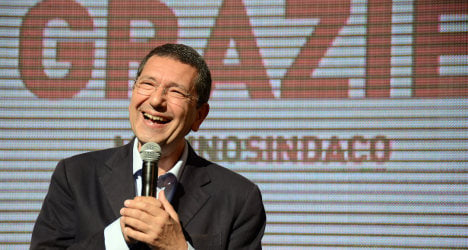Who is Ignazio Marino?
He’s a 58-year-old former transplant surgeon and centre-left politician. On Monday, he was elected Mayor of Rome – displacing Gianni Alemanno, his former neo-fascist predecessor, in a landslide victory despite low voter turnout.
Tell me more.
For a Mayor of Rome, Ignazio Marino has spent surprisingly little of his life in the capital city. Marino was in fact born in Genoa, north-west Italy, and moved to Rome at the age of 14.
After completing a bachelors degree in Medicine and Surgery at the Università Cattolica del Sacro Cuore in Milan, he did further studies at the University of Cambridge in England and at the University of Pittsburgh in the United States.
While in America, he helped perform the first baboon-to-human liver transplant. In Rome in 2001, he conducted the first organ transplant in Italy on a patient who was HIV positive, causing much controversy.
“The patient still lives an excellent quality of life today, and the operation has opened up new treatment possibilities in Italy for patients with HIV,” writes the Mayor on his personal website.
While working in the US at Jefferson College, the Italian medic once again made surgical history by achieving the highest survival rate for liver transplant patients in the entire country.
What about his politics?
Marino finally returned to Rome for good in 2006 – which, unsurprisingly, he describes as “the city I love most in the world”.
According to media reports, it was his friend, Massimo D’Alema, the then Deputy Prime Minister, who persuaded him to enter politics. Subsequently Marino obtained a seat in the Italian senate as an independent candidate for the Italian democratic party.
In the years that followed, he worked on health committees and campaigned for issues including euthanasia. He also denounced the treatment of patients in psychiatric hospital prisons – and was instrumental in their closure.
In 2009, Marino was a contender for the leadership of the Democratic Party and is now Mayor.
How’s his new job going so far?
He managed to hit the morning headlines on his very first day as mayor when he cycled to work on his bicycle. But, judging from a video (see below) of his progress, this wasn’t the most practical way for him to travel through the city, as a throng of supporters obliged him to slow down to a snail’s pace.
Not that this seemed to worry him. “The bike ride? It was great!” the new Mayor told reporters as he dismounted from his bike to enter Rome City Hall.
But it hasn't all been a smooth ride for the new Mayor. Yesterday he released a statement after an ambulance crew was attacked by an angry crowd of onlookers following a road-rage incident in Rome.
“We cannot allow such serious incidents to occur in our city, especially when men and women, who provide assistance to those in need, are brutally attacked,” he said.
What does he plan to do for Rome?
Judging from his campaign website, quite a lot.
“I dream…of a city that works, with a transparent management that makes the lives of the people that live here easier, safer and faster. An international city that increases opportunities for all,” writes the Mayor on his website.
Top on his to-do list is addressing Rome’s notorious traffic and public transport problems. Yesterday it was reported that he intended to begin by turning the notoriously traffic-clogged Via dei Fori Imperiali near the Colosseum into a pedestrian area.
What do Romans think of him?
Why don’t we start with a quote from one of his nearest and dearest, his Swiss-born mother, Valeria Mazzanti who has also made the capital her home. On the day her son was elected mayor, she told us she was “very happy”.
This week, The Local also took to the streets to talk to ordinary Roman citizens about whom they intended to vote for.
For Ornella, a Rome-born banker, it was her concern for the city’s environment and public transport that pushed her to vote for Marino.
“Marino is completely different from Alemanno; he is more concerned about nature. Rome has some beautiful parks but they’re not being properly taken care of,” she said.
But not all voters – even those on the left – were so optimistic. Giulio, a restaurant worker from Calabria who’s lived in Rome for many years, admitted that he’d voted for Marino in the first round in May because he thought “he could be the person to make things more equal”.
However, he said he wouldn’t be voting in the final round, claiming that Italians have lost their way in politics.



 Please whitelist us to continue reading.
Please whitelist us to continue reading.
Member comments